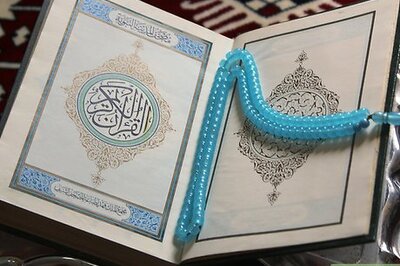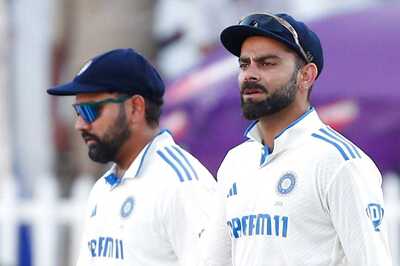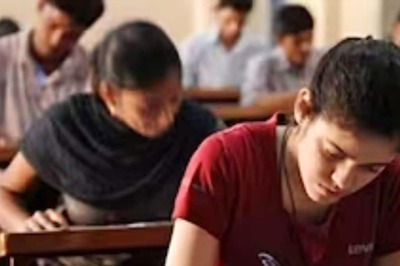
views
BANGALORE: His films were a break-through in Iranian cinema since he first introduced the concept of new-wave into his films. Dariush Mehrjui, the 72-year old Iranian film-maker, majored in philosophy after he realised that film institutes did not teach the aesthetics of cinema, but instead taught its aspects. He laughs when he says, “I can be called a ‘philosophical film-maker’. I believe that my movies have many layers to it. A film has to purify your thoughts, your spirit as well as your intellect,” he said. The film maker was in the city for the Bangalore International Film Festival (BIFFES 2011). He addressed the journalists at a press conference held at Vartha Bhavan on Saturday. Mehrjui spoke in length about his films and fate of Iranian cinema and its censorship. He said that when he was 16 years old, he was drawn to art films and that Ingmar Bergman, Fredrico Fellini interested him, along with French cinema; and neo-realism or what is popularly known as the ‘new wave’ cinema. When asked about his take on politics and if he would want to make films based on ‘extremism’, he said that he would like to stay away from politics. “But, the contemporary world has a melody of political observations and background. It is the same all over the world. It almost seems absurd and devastates your spirit. You can never escape from it,” he expressed. Talking about his first film, ‘Diamond 33’ — an action based movie which he claims is technically acceptable and the Iranians liked it because of its ‘Hollywoodisation’, he says, “I was 26 years old and a little crazy. It was initially a 100 minute long movie. My producer told me that the film was going to release in India and that the people are used to watching a two-and-a-half hour movie! So, we put in special effects and action sequences, and made it a long movie.” Then ‘Gaav’ (The Cow) was released, which is even today a pioneer film in Iran. The Shah was in the middle of creating a new civilisation and was trying to portray modernisation and first-worldly objectives when this film was released. It was smuggled by a friend in a suitcase and was screened at the Venice film festival without subtitles. “I had to translate the film to the audience and still received appreciation from all over the world and people were surprised to see that such a film was made in Iran. Even though it was initially promoted by the Ministry of Culture, they later banned it due to all the negative publicity for the Shah,” he explained and termed it a ‘funny’ incident.Mehrjui also did a course in film-making, where Renoir was his mentor. And, on his venture of making women-oriented films, he said that Iranian women are the most exploited class. “I have made five to six women oriented films. Women are a class of people who are oppressed, depressed, deceived and dominated over by men. My women characters are generally bright, educated and liberated and they are out to rebel the Islamic establishment,” he narrated. His film Banoo was banned for nine years. And, Santoori was confiscated by the Ministry of Culture, three days before the movie was to be released. “The DVD of the film was smuggled out a few days later and it made millions of bucks. It is cruel and unjust and many film-makers go through a state of depression. It is the reason why many choose to go to other countries and make films. But, what is the point in making such films,” he questions. When asked if the Iranian government is influenced by all the films that are being made by Makhmalbaf, Jafar Panahi,Majid Majidi and others, he answered with an emphatic no. “The censor committee keeps changing and each new member is afraid to liberate films. The government says that they are against ‘bad’ cinema. No theatre in Iran screens art films. Nobody watches our films; it is only screened at international film festivals. Young film-makers should come back to Iran and make films. It does not make sense otherwise. It will more feel like a formality,” he lamented. Dariush is currently working on a film revolving around the concept of Feng-Shui. All his films are available on www.asiapacificfilms.com.



















Comments
0 comment